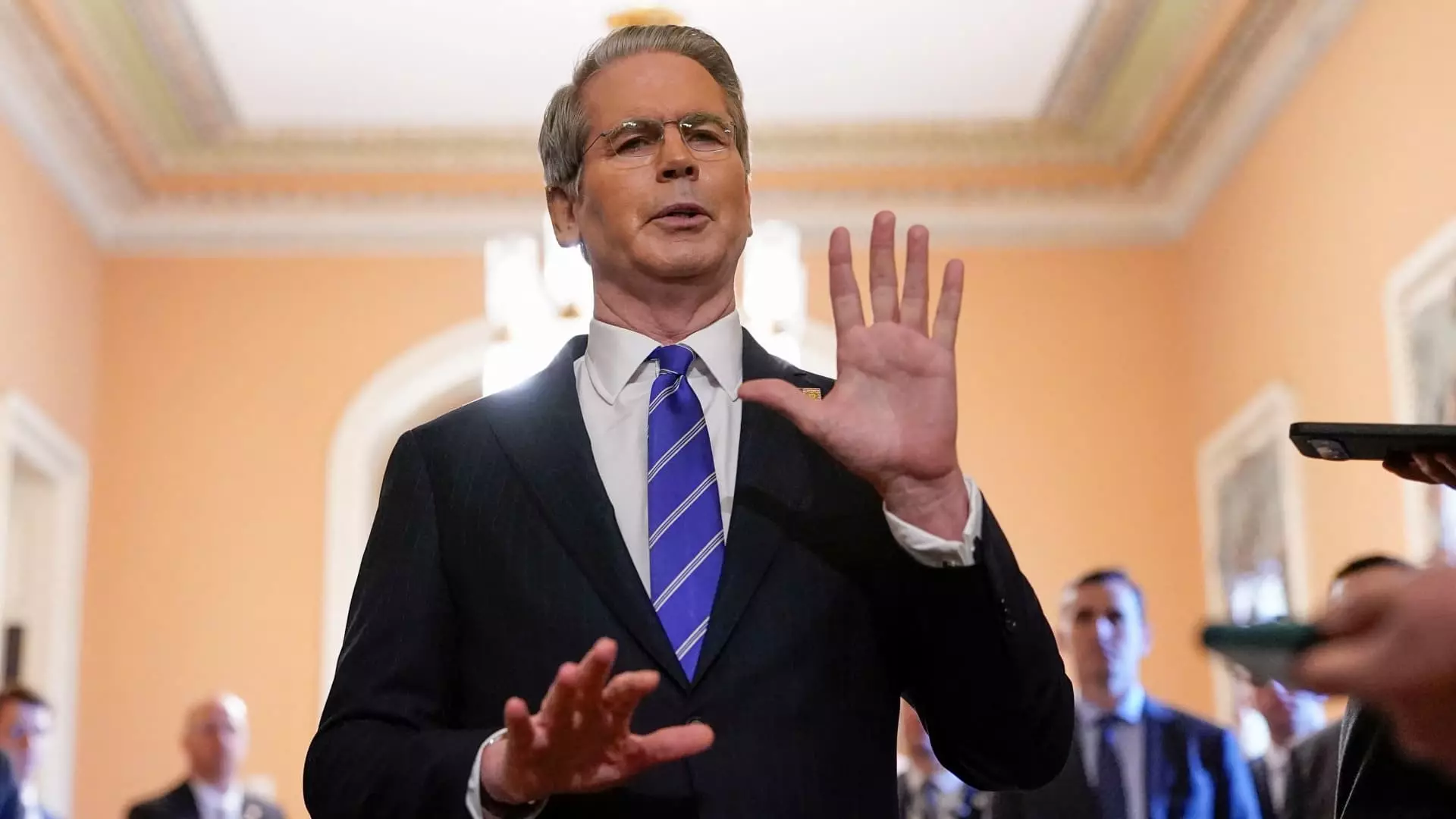The recent signals from the U.S. Treasury suggest that the Trump administration’s aggressive stance on tariffs is less about strategic economic positioning and more about brinkmanship. While officials trumpet what they claim are steps toward new trade agreements, the real message resonates as a warning: the U.S. is willing to jeopardize longstanding diplomatic and economic relationships to pursue unilateral negotiations. This approach risks creating a climate of unpredictability that unsettles global markets, undermining the very stability that international trade efforts depend upon. Rather than fostering genuine cooperation, the administration’s posture seems intent on coercion—an approach that ignores the deeper complexities of international diplomacy and economic interdependence.
The Illusion of Leverage in Tariff Politics
The administration’s strategy hinges on threats of escalating tariffs to pressure trading partners into concessions. However, this tactic is inherently flawed, as it presumes that adversaries will capitulate under duress rather than seek alternative avenues for economic resilience. The administration’s use of stern letters and the threat of reverting to previous tariff levels serve more as political posturing than practical solutions. Such maneuvers risk igniting a tariff race, leading to retaliatory measures that could spiral into a global trade conflict with far-reaching consequences. It is a gamble that could backfire, escalating tensions rather than fostering amicable agreements.
The Cost of Diplomatic Recklessness
By scheduling tariff hikes around specific dates, the Trump administration appears to prioritize short-term leverage over long-term diplomatic integrity. This calculated countdown fosters a sense of crisis that might pressure weaker negotiating parties, but it also marginalizes the importance of mutual understanding and respect. The absence of genuine dialogue and the reliance on threats diminish the prospects for fair, sustainable trade agreements. In the end, such tactics threaten to do more damage to the global trade ecosystem than any benefit they might temporarily secure.
The Risk to Domestic and Global Economies
The consequences of this aggressive tariff stance extend beyond international diplomacy; they threaten economic stability at home and abroad. Market volatility, disrupted supply chains, and increased consumer costs are inevitable byproducts of this volatile approach. Instead of fostering growth and cooperation, the focus on tariffs as leverage risks fueling economic uncertainty that will impact workers, businesses, and consumers alike. The administration’s apparent eagerness to escalate tensions casts doubt on whether these measures are truly in the best interest of the American public or merely a politically motivated spectacle.
A Call for Responsible Leadership
While some may see tariffs as a tool to protect domestic industries, their reckless deployment under a game of diplomatic brinkmanship ultimately undermines the foundational principles of fair trade. A more responsible approach would emphasize dialogue, mutual respect, and genuine compromise. Instead of issuing ultimatums, leaders should seek to strengthen alliances and promote policies that balance national interests with the global good. Only then can the United States uphold its economic integrity without risking long-term damage in pursuit of short-term political victories.

